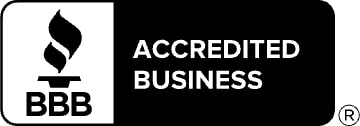Probate — also called estate administration — is the legal process of gathering and distributing a decedent’s assets according to North Carolina state law and the terms of a valid will, if one exists. In the event the decedent dies without a valid will, the estate will be probated in accordance with North Carolina’s intestacy laws.
The probate process can be long and complicated for grieving family members and those tasked with managing the decedent’s estate, especially when proper estate planning hasn’t been done. In addition to the delays the probate process may cause in getting your assets into the hands of your beneficiaries, probate can result in substantial costs in the form of administration and attorney’s fees.
However, you can better prepare for minimizing the impact of North Carolina’s probate process and avoid the pitfalls associated with probate with proper estate planning ahead of time. At Charlotte Estate Planning, attorney Ryan Stump helps people successfully navigate their estate plans to keep complication, disputes, and probate to a minimum. Call (704) 766-8836 for a consultation.
Probate in Charlotte, NC
Navigating probate alone can be challenging, even for smaller estates. A probate lawyer understands North Carolina law and will inform you of the obstacles as you craft your will and other estate planning documents, so you can make informed decisions and minimize the stress of probate.
Executor Court Petition
To begin the probate process, the executor — the individual responsible for managing the estate — must file a petition with the County Clerk of Court where the decedent resided at the time of their death. The executor must gather the will, proof of death, and a general inventory of the estate’s assets. Once the executor has this information, they can contact the Clerk of Court for approval to be an estate executor.
Executors & Personal Representatives
Once the petition is approved, probate will begin, and the executor will be granted authority over the deceased person’s estate.
Executors have a fiduciary responsibility to act in good faith and in the best interest of the beneficiaries involved. The court will appoint a personal representative if there’s no will or the will fails to name an executor. Only certain individuals qualify, including:
- Surviving spouses
- Anyone the decedent chooses to distribute property to
- Anyone entitled to property if a will doesn’t exist
- Next of kin
- Creditors the deceased person owed before their death
- Any person of good character in the respective county who applies with the court
Letters of Testamentary
When an individual is appointed executor of an estate, the court will issue legal documents called letters of testamentary. These documents give the executor full access to the decedent’s assets and allow them to begin distribution to beneficiaries outlined in the will.
Duties of a Personal Representative
After receiving letters testamentary, the personal representative can begin to fulfill their duties, which include:
- Taking inventory of the deceased’s assets
- Distributing assets according to the decedent’s will
- Publishing notice of death to creditors
- Coordinating payment of outstanding debts and taxes
- Preparing a final accounting and closing the estate after assets have been distributed
What Assets Go Through Probate?
Probate is reserved for assets that remain in a person’s name after they die — and could include anything from real estate to household furniture. If a decedent doesn’t have a will detailing who will take ownership, it will be up to the court to decide how they’ll be distributed through intestate succession statutes.
Do Small Estates Go Through Probate?
Smaller estates without significant personal property and assets can be settled without formal probate. In North Carolina, small estates are those worth less than $20,000 or under $30,000 if the sole beneficiary is a surviving spouse.
Suppose a surviving spouse is the only beneficiary of the estate. In that case, they can quickly resolve the estate and inherit everything through a simplified process called summary administration, which only requires payment of court fees and completion of a handful of legal forms.
Avoiding Probate Litigation in North Carolina
Although probate is complicated, expensive, and time-consuming, it doesn’t have to be. A well-crafted estate plan is the best way to ensure a smooth transfer of assets and minimize the possibility of litigation.
Revocable Trust
A revocable trust allows individuals to make decisions regarding their assets before it’s too late. Revocable trusts enable you to transfer as many assets as you wish into a trust where they will remain until your death.
After your death, your assets will be transferred to your appointed successor trustee, who is responsible for managing and/or distributing your assets per the terms of your trust document — much like a personal representative outlined in a will.
Unlike a will, a trust transfers assets immediately after your death. This bypasses probate, which keeps the assets of an estate private and reduces the value of your estate subject to probate fees and costs. Further, this trust can be revoked at any point in your lifetime. Ask your attorney if your assets qualify for a revocable trust.
Joint Ownership
In North Carolina, two people can choose to own property with the “right to survivorship,” — meaning that when one owner dies, the property will be immediately transferred to the surviving joint owner. With this process set up beforehand, you don’t have to go through probate to establish ownership and transfer of property and other assets owned jointly with the right of survivorship.
Payable-On-Death & Transfer-On-Death Designations
Certain assets allow you to transfer them to your beneficiaries upon death. Consider a payable-on-death designation for your bank account or a transfer-on-death designation for stocks, bonds, and applicable retirement accounts. This prevents significant assets from going through probate and could provide surviving family members with immediate financial assistance.
Avoid Probate with Proper Planning
Whether you have a small or large estate, the benefit of an estate planning attorney considering probate after your passing cannot be overstated. Our attorneys at Charlotte Estate Planning have the resources and experience to handle your unique needs and assets so everything is considered and properly designated. In the event your estate plan does need to engage in the probate process, we can offer assistance and articulate your wishes after your passing.
To learn more about how your estate can plan to avoid probate, contact Mr. Stump today at (704) 766-8836.







